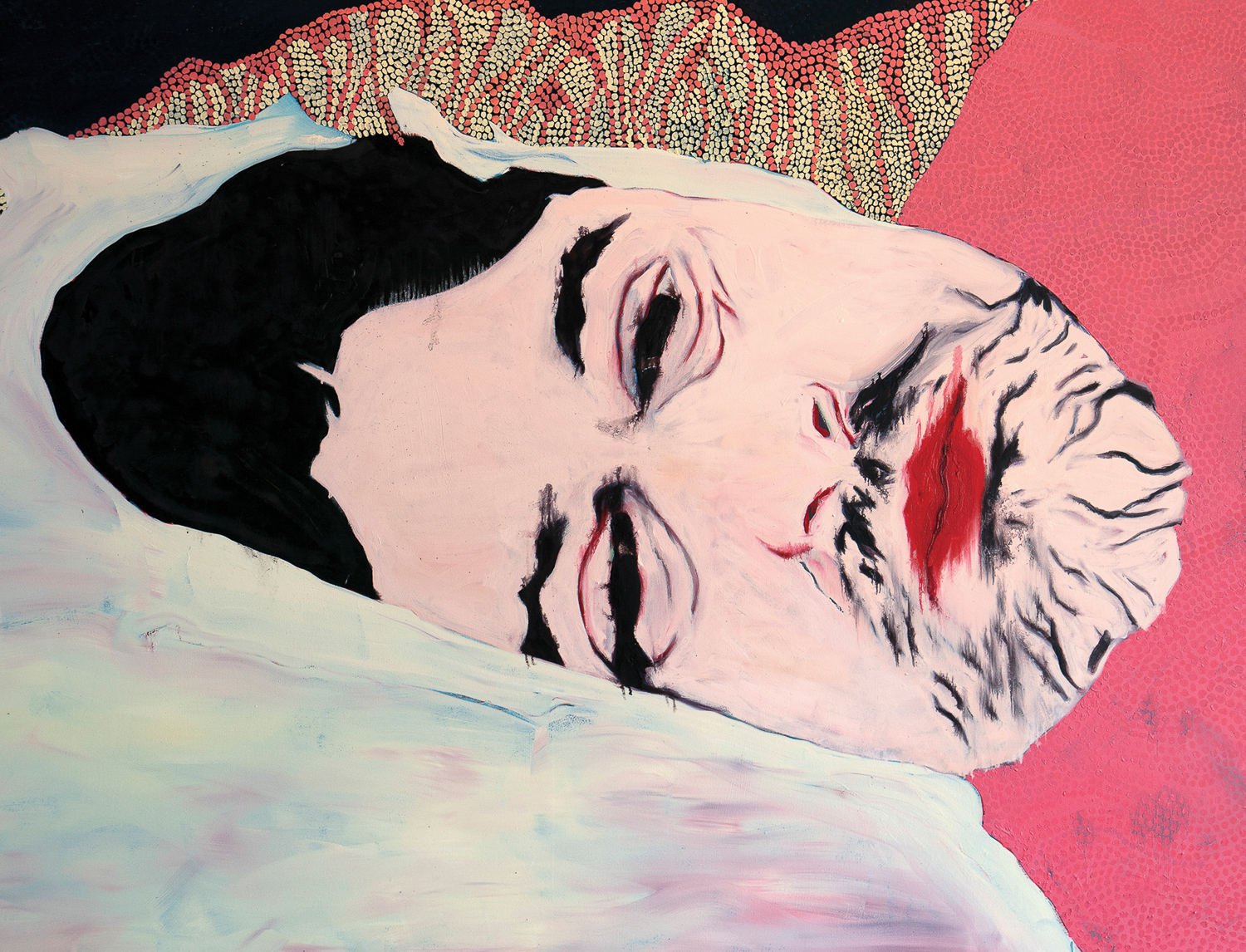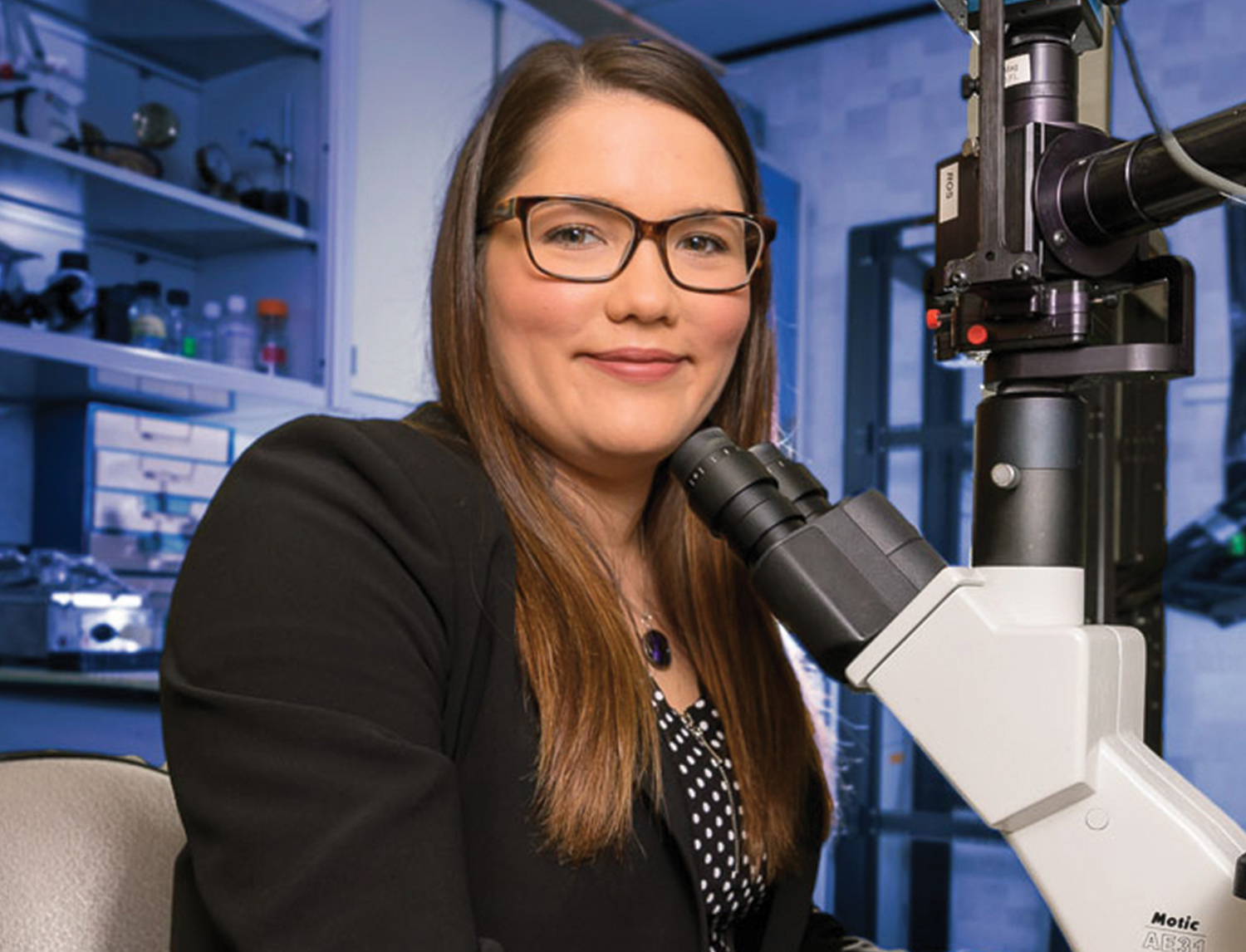Learners as Leaders
Meet two PhDs who are breaking new ground in their fields
Brad Necyk
Psychiatry PhD candidate
For Brad Necyk, giving visual form to the pain of cancer and mental illness is a way to help patients heal.
Necyk observed and heard the stories of transplant patients and head and neck cancer patients in Edmonton, Indigenous survivors of suicide attempts in the Arctic and youth at Toronto's Centre for Addiction and Mental Health (CAMH).
These immersive experiences were difficult for Necyk, who suffers with bipolar disorder, but each time he emerged to create a series of evocative artworks meant to capture his own and others' subjective experience of illness.
"You go down to a place that's dark and unfamiliar, but then pull form out of it. It's a terrifying but really creative time-important and really meaningful," he said.
Necyk's work has been shown in the Double Happiness Project in Toronto, and at the International Museum of Surgical Science in Chicago as part of a six-artist exhibit called "see me, hear me, heal me."
Related stories:
Stephanie Lunn
Pharmacology, '18 PhD
When pursuing her BSc and later her PhD in pharmacology, Stephanie Lunn was told by mentors and staff at career fairs that finding a job out of grad school would just take patience and perseverance.
While this failed to bring her much comfort, she now offers the same wisdom to others, since landing a dream role with Aurora Cannabis Inc.
"I like a lot of things and never wanted to limit myself in a job. I like mentoring and teaching, being a leader, and I'm opinionated so I knew I needed a unique job that was going to give me a new challenge every day," she said.
At Aurora, the team-oriented culture is amazing, she has an awesome supervisor and her work as a research specialist -reading and analyzing scientific literature on cannabis to support business decision-making among various teams-is exactly what she wants to be doing.
"When I look back over the years, how I chose pharmacology, and finding such a great lab to grow in, things really do just happen."
Related story:
How this graduate landed a dream job two months out of pharmacology
Tips for budding scholars
Mentorship is a collaborative effort, says Greg Funk, University of Alberta professor of physiology and member of the Women and Children's Health Research Institute and Neuroscience and Mental Health Institute.
Recipient of the 2018 Killam Award for Excellence in Mentoring, Funk shares insights for learners looking to build a better relationship with an academic mentor.
Be proactive
Trainees need to take ownership over their research as soon as possible, says Funk. "Ownership is highly motivating―it gets them personally invested in the science and fosters curiosity so they start asking their own questions."
Build relationships
"Trainees are in the laboratory to acquire a set of skills-hard and soft-necessary for transition to independence," says Funk. "Your mentor is not an adversary; your success is also your mentor's so, in the vast majority of cases, they will be your strongest lifelong advocate!"
Set fear aside
"A common fear is the statistic that only 15 to 18 per cent of PhDs are going to get a faculty position, which terrifies people," says Funk. "But that's based on the supposition that it used to be 100 per cent, which it was not. Thirty years ago, the rate was about 25 per cent, so it's lower, but it's not like it has dropped from 100 to 15 per cent.
"It's still a challenge, but there are great opportunities out there. Every trainee from my lab who wanted a tenure track position now has one, so enjoy your graduate career because if it's done right, it can be spectacular."
Full story: Illuminating the path to research success

